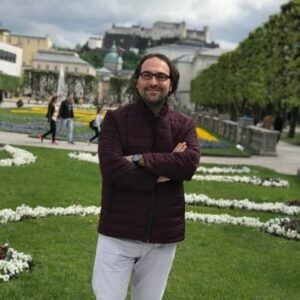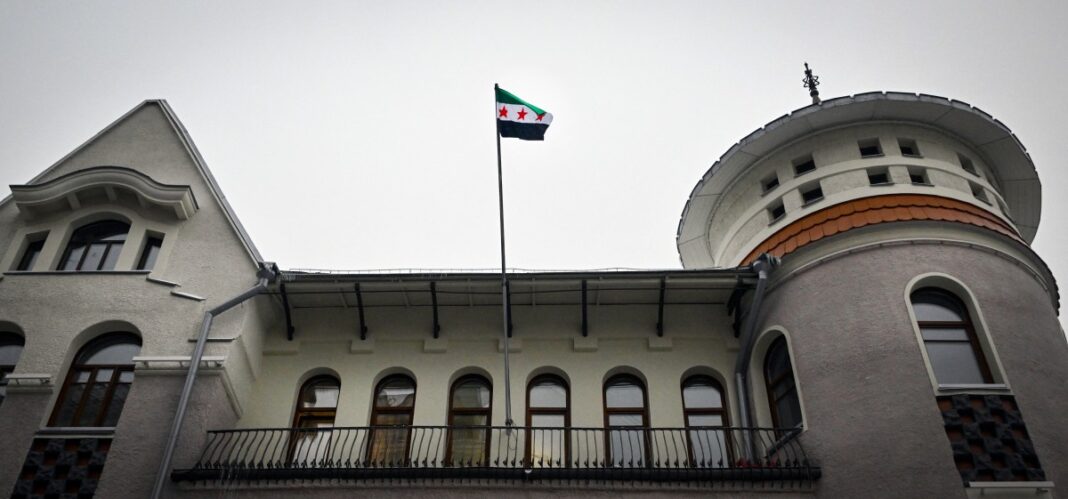Bünyamin Tekin
As Russia navigates the fallout of regime change in Syria, Russia analyst Kerim Has spoke to Turkish Minute about the consequences of this strategic loss and Turkish President Recep Tayyip Erdoğan’s growing influence in the region. The developments signify a turning point in Russian-Turkish relations and a recalibration of power dynamics in the Middle East.
The fall of Syrian President Bashar al-Assad and his subsequent flight to Moscow marks a significant turning point in Syria’s civil war and Russia’s role in the Middle East, according to analysts. With a potential complete retreat from key Syrian bases looming, Russia faces a precarious position in the Middle East, risking a loss of strategic footholds and further undermining its global power ambitions.
Has described the fall of Damascus to opposition groups as a profound blow to Russia’s geopolitical aspirations. “This is not merely a tactical withdrawal; it’s a strategic loss,” he said.

“Syria is not just about Syria for Russia — it represents access to the Mediterranean, a foothold in the Arab world and a symbol of its return to great-power status.”
Russia’s military intervention in Syria in 2015 was initially hailed as a cornerstone of President Vladimir Putin’s foreign policy. The intervention marked Moscow’s first major military operation outside the post-Soviet sphere since the Cold War, bolstering Assad’s regime and showcasing Russian military prowess. However, Has emphasized that the simultaneous pressures of the ongoing war in Ukraine and broader geopolitical challenges have left Moscow overstretched.
“Managing multiple fronts has stretched Russia’s resources to their limits,” Has noted. “The loss in Syria reflects not only a loss of an ally but also a broader decline in Russian influence.”
Adding to the challenge is the ambiguity surrounding the status of Russia’s military assets in Syria. Has pointed out that while most equipment remains in place, uncertainty looms over the future functionality of critical bases like Hmeimim and Tartus. “The best-case scenario would involve maintaining these bases with diminished functionality,” he said. “At worst, they could be lost entirely.”
Erdoğan has leveraged the situation to consolidate Turkey’s influence in Syria. Has highlighted Turkey’s longstanding relationship with Hay’at Tahrir al-Sham (HTS), a key opposition group in Syria.
“For years, Turkey has cooperated with HTS, maintaining observation points in Idlib and preventing Syrian forces from reclaiming the region,” he explained.
Erdoğan’s actions exemplify his pragmatic approach to foreign policy. “Erdoğan is not driven by ideology, but by power and opportunity,” Has said. This pragmatism has allowed him to play multiple sides, maintaining relations with the United States, Russia and regional actors like Israel and Iran.
Has underscored the adaptability of Erdoğan’s policies, citing examples of his shifting allegiances. “Erdoğan’s relationship with Assad soured despite initial camaraderie, and his overtures to groups like Hamas have always been transactional,” he said. “If the conditions align, Erdoğan could easily pivot to work with actors like China or Saudi Arabia.”
The fallout from changes in Syria has sparked frustration within Russia’s political and military circles, although the Kremlin has refrained from openly criticizing Turkey. Has noted that this restrained response reflects Moscow’s dependency on Turkey for trade and diplomatic channels amid Western sanctions.
“Russians feel stabbed in the back,” Has said, referring to Turkey’s perceived betrayal. “This sentiment is reminiscent of the anger following the downing of a Russian jet by Turkey in 2015, but the stakes are much higher now.”
In a series of tweets on Tuesday, Russian philosopher and nationalist ideologue Alexander Dugin, often linked to hawkish Kremlin circles, lamented Turkey’s perceived alignment with Israel and Western interests, framing it as a significant miscalculation by Erdoğan. He highlighted the historical cooperation between Russia and Turkey, including Moscow’s efforts to avoid escalation after the 2015 downing of a Russian jet and its support for Erdoğan during the failed coup attempt in 2016. Referring to the situation in Syria as “very painful,” Dugin warned that Erdoğan’s decision to move forward without Russian backing risks undermining Turkey’s position in the region.
There are so many ties between Russia and Turkey. Its behaviour is clearly in favor of Israel and globalists that time. It is sad. Russia is not so weak as the West wants to present it. I believe that was miscalculation on the side of Erdogan.
— Alexander Dugin (@AGDugin) December 10, 2024
Dugin’s critique extended beyond tactical decisions to ideological considerations. He argued that Islamist ambitions are inherently incompatible with Turkey’s leadership in the Arab world and cautioned that Kurdish forces in Syria, bolstered by Western support, are likely to consolidate power in the absence of Russian influence.
“Without Russians in Syria, Erdoğan loses a very important ally and friend,” Dugin wrote, signaling the potential for further deterioration in Turkish-Russian relations. His comments underline a broader sentiment of discontent among Russian hardliners, who see Turkey’s actions as a betrayal of the cooperative ties cultivated in recent years.
Russia will not do to Turkey any harm. For sure. But after such betrayal it is hard to hope that Russia will come to help Turkey in the case of trouble. And troubles arrive from time to time.
— Alexander Dugin (@AGDugin) December 10, 2024
Russian media, meanwhile, has adjusted its language to reflect the new realities on the ground. Has explained that terms like “terrorists” to describe HTS have been replaced with “armed opposition,” signaling a shift toward potential negotiations. “This linguistic adjustment shows Russia’s attempt to salvage its position while preparing for a new phase of engagement,” he said.
On top of the muted rhetoric toward Turkey, criticism of Assad has intensified within Russia. Kremlin-aligned analysts and journalists have openly labeled him a “despot” and blamed him for the Syrian army’s failures. However, Has emphasized that such critiques are not reflected in official statements. “Blaming Assad serves as a convenient scapegoat for Moscow’s own miscalculations,” he said.
Russian state media outlets like RIA Novosti and TASS have downplayed the significance of the developments, focusing instead on other issues such as domestic achievements and the ongoing war in Ukraine. Has noted that this selective reporting points to Russia’s attempts to maintain an image of control and resilience.
The repercussions of Russia’s retreat in Syria extend beyond the Middle East. Has highlighted the impact on Moscow’s credibility in regions like the Caucasus and Central Asia, where it faces growing challenges from Turkey and Western powers.
“Russia’s loss of influence in Syria complicates its ability to assert itself elsewhere,” Has said.
The analyst also pointed to parallels between recent events in Syria and earlier developments in Nagorno-Karabakh, describing both as part of a broader pattern of geopolitical shifts.
“These events highlight Russia’s waning ability to project power effectively due to the conflict in Ukraine,” he said. “They also showcase Erdoğan’s ability to exploit these shifts.”
While Turkey has emerged as a dominant player, Has said Russian analysts underline potential risks associated with its involvement in Syria. He specifically pointed to HTS as a possible liability. “Russian observers remind that these groups may align with Turkey now, but they are inherently unstable and could pose significant challenges in the future,” he said.
Has also noted that many in Russia questioned the long-term viability of Turkey’s strategy in Syria, citing corruption, smuggling and the fragmented nature of opposition groups. “One of the views in Russian-speaking media is that Turkey’s efforts to build something lasting in Syria could ultimately bring more harm than benefit,” he said.
Russia’s retreat comes as the global geopolitical landscape undergoes rapid changes. The US, Israel and regional powers like Iran and Saudi Arabia are vying for influence in the vacuum left by Russia, while Turkey positions itself as a key player.
Has noted that Putin’s silence on Syria underscores the gravity of Russia’s predicament. “Putin has yet to address the situation publicly, and even Foreign Minister Sergei Lavrov has remained uncharacteristically quiet,” he said. “This silence reflects an ongoing process of adapting to a new reality.”
At the same time, Has emphasized that Russian-Turkish relations remain pragmatic. “Despite their frustrations, Russia recognizes the importance of its relationship with Turkey,” he said. “The partnership has always been transactional, driven by mutual interests rather than trust.”
